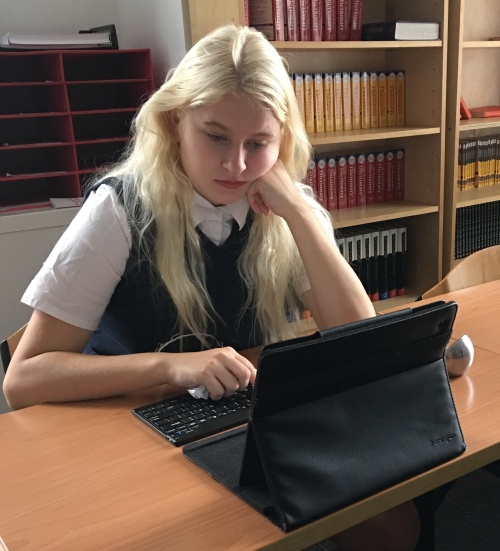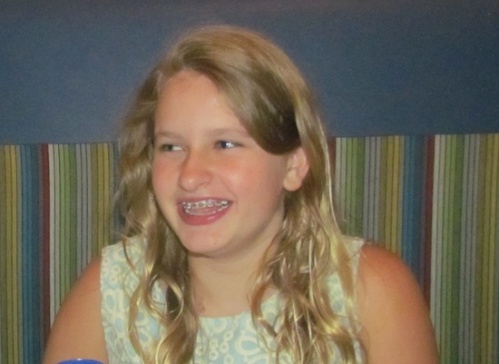Emma does not go to school, instead the world has become an enormous classroom. Here are a few snippets from today…
We began the day with our daily Skype call with Dr. C. who begins each call by asking Emma if she has any questions for him. Today she typed, “Inkling of noted capacity of space is to be reviewed?”
Without missing a beat Dr. C. said, “Recall that the inflationary hypothesis predicts that space is expanding faster than the speed of light, thus it has been theorized that if the entire universe is the size of planet Earth, the part of the universe that we can see with telescopes is about the size of a grain of sand.” Emma replied, “Present state of what we understand, but may be limited by our perceptions.”
“Agreed,” Dr. C said and then added, “This is always the way with scientific advancement. Every day new experiments are being run that either support or repute theories and hypotheses, thus theories are continually changing. It may well be that the inflationary hypothesis will be abandoned and some new theory (maybe the Cyclic Universe Theory) will emerge. That is the way of science, Emma! It continually changes.”
What followed was a brief discussion about Cyclic Universe Theory and then the conversation returned to Units and Equivalents where Emma was asked to view a powerpoint slide showing two graphs showing weekly wages, which upon closer inspection were the same data, but because of the way they were shown, seemed very different. Dr. C asked Emma which one she would prefer getting for a weekly allowance and Emma enthusiastically pointed to the one that appeared to be monetarily favorable. Dr. C then explained why it was not and how this was a good example of how data can be changed, while still being legitimate. Emma then typed, “Deceptively similar. We both need a raise.”
After much laughter, Dr. C. talked about how important it is to study data to be sure you are not being deceived. Emma then typed, “Either one is a manipulation. The facts are easier without ego.”
The lesson ended with a discussion about density and Emma was given a homework question where she will need to calculate the weight of a gold brick. She has been given the dimensions, an equivalency chart to convert inches, centimeters, kilograms and pounds and the density of gold.
After our Skype call we went to see B. Emma was asked, “Do you think you are learning more now that you are NOT in school?”
“My mind is expanding as big as a watermelon that feeds an entire school,” Emma typed.
Interestingly, and as a quick aside, earlier in the week we discussed with Dr. C Hubble’s Law and the idea that the universe may be expanding, so I found her choice of words particularly wonderful.
Later B. described a limerick, briefly talked about iambic pentameter (a limerick is typically AABBA) and gave her the “rules” of most limericks. Limericks are five lines, lines one, two and five rhyme, with lines three and four rhyming with each other, they have a distinctive beat with lines one, two and five being longer than three and four, and they are usually humorous.
B. read the following limerick, the writer is unknown, which is about limericks!
“Writing a Limerick’s absurd,
Line one and line five rhyme in word,
And just as you’ve reckoned
They rhyme with the second;
The fourth line must rhyme with the third.”
B. asked Emma what she thought and this was Emma’s reply:
“Dancing each day is a joy,
It’s better than playing with toys,
If you disagree
Come spend time with me,
It’s fun for both girls and for boys.”
After we returned home Emma and I read the first chapter of George Orwell’s Animal Farm in preparation for Emma’s book club with K. on Friday and went on a field trip to the Museum Of Modern Art. Prior to leaving on her field trip to the museum, she was shown the current exhibits and asked which looked interesting to her. Emma typed, “wandering through possibilities is best.”
I don’t know about you, but I want a T-shirt that says that.
“Wandering through possibilities is best.”

“Wandering through possibilities is best.” ~ Emma Zurcher-Long























